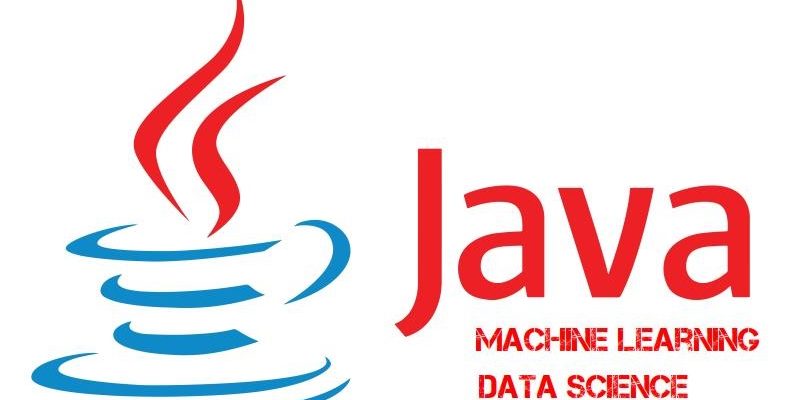
Importance of Java Programming in Machine Learning and Data Science
Machine Learning (ML) & Data Science have brought plenty of changes into business operations around the world. It has become an important part of our daily lives. We can see several use cases where Machine Learning simplifies the whole workflow, from self-driving cars to the use of robots to manage warehouse tasks, chatbots in customer care portals, and several more. It is challenging to find out the best programming language because of the development requirements, usage, and several other factors. Although ML can be developed with C++, Python, Java Programming in Machine Learning is the most preferred choice. This is due to the timely Java Support over other languages. Most people are alert to the efficiency of Java in terms of features and user experience. In this blog, we will talk about some more technical parameters of Java in the context of ML development.
The machine learning implications for business processes are in huge demand and because of the need for skilled, trustworthy partners to build ML-based applications is growing at a fast rate. But to develop a user-friendly, innovative, and cost-effective application, it is essential to choose the right programming language.
Benefits of Using Java as ML& Data Science Programming Language
We already know that Java is object-oriented and scalable. It hosts plenty offeatures to meet different business requirements. Developers perform integrationto build scalable neural networks,machine learning solutions, multi-robot systems,and other AI projects.
A few key advantages of the languages are discussed below.
- It is cross-platform, helping to build large-scale applications targeted to multiple platforms including Windows, Linux, Android, &iOS.
- Has in-built garbage collector eliminating unnecessary data automatically.
- The presence of Swing and SWT assists in buildingexcellent, user-friendly app interfaces and graphics.
- Has amazingcommunity support to fix issues or queries instantly.
- Presence of numerous online free tutorials to use the capabilities of Java programming language.
Oracle offers Java virtual machine technology, making it portable, transparent, and easy to maintain. It supports numerous coding types of algorithms to make data science application development easier.
ML applications are spread across all business enterprises. Brands take a keen interest to Hire Java Developer to enjoy the immense benefits of AI to improve their growth.ML is based on search algorithms, natural language processing, neural networks, and genetic programming. When ML applications are implemented with the use of Java, several benefits are attained comprising ease of debugging, implementation simplicity, visualization promptness, and improved user interaction.
Steps to implement ML & Data Science with Java
1. Define Problem Statement
Problem statement approach simply lays out the application purpose. Your idea is justified by what you want to achieve from your Java application.
2. BuildTraining Material
Machine learning algorithms need to be trained with a sample data. Once initial training is completed, the algorithm depends upon the logic and derives decisions based on its learning.
3. Evolution of Algorithm
Next, algorithm evolves seeing the crossover, or mutation methods. The component has to be built with Java in order to be fit.
4. Expert Rules in Java
Rule Engines in Java are static, and needs human assistance to add, delete, and customize them. When MLissue is small, these rules are a big alternative to the evolutionary elements.
So, these are the steps required in the implementation of ML & data science with Java. If these steps are followed in the right manner the results are incredible.
Frequently Asked Questions
1. Is Java good for Machine Learning?
Java is an object-oriented programming language for both machine learning & data science. It has built-in capabilities useful for IoT applications. Java is highly portable and doesn’t have hardware limitations.
2. Is Java good for big data?
Java is probably the best language to learn for big data for a number of reasons; MapReduce, HDFS, Storm, Kafka, Spark, Apache Beam and Scala are all part of the JVM (Java Virtual Machine) ecosystem. Big Data Applications Using Java brings remarkable business results and is the preferred technology partner.
3. Is Java good for data science?
Java is an incredibly useful, speedy, and reliable programming language that helps development teams build a multitude of projects. From data mining and data analysis to the building of Machine Learning applications, Java is more than applicable to the field of data science.
4. Is Java used in IoT?
Java offers ubiquitous connectivity power and constantly evolving capacity, making it the most preferred programming language for IoT devices and systems. Java-powered IoT devices are more effective in exchanging and retrieving information. Using Java makes IoT devices more integrated.
Wrapping Up:
Machine Learning & Data Science is based on embedded technology, Big Data Analytics, and Artificial Intelligence. Implementation of ML needs several considerations, as it deals with multiple data streams, and that’s where Java comes into the picture. The universality, versatility, flexibility, and reliability of the Java language permit it to adapt to IoT application development with minimum resources and efforts. It is the right time to explore the real potential of Java and the Internet of Things. Java India is a renowned Java Development Company in terms of providing artificial intelligence and machine learning solutions to our clients. So if you are looking for the same then get in touch with us.

